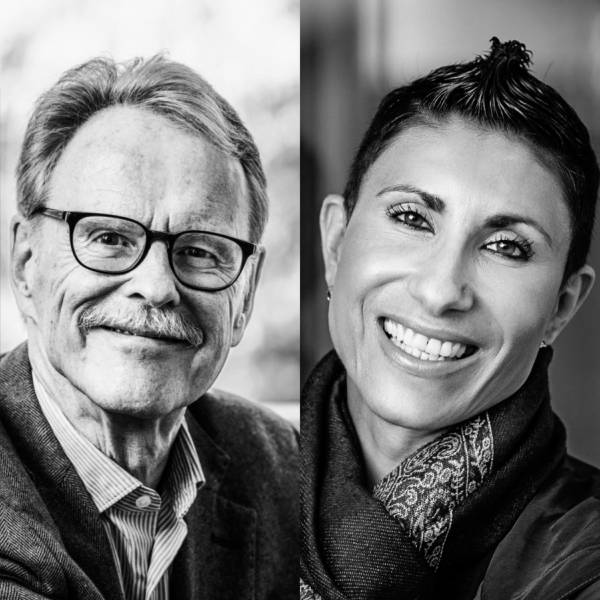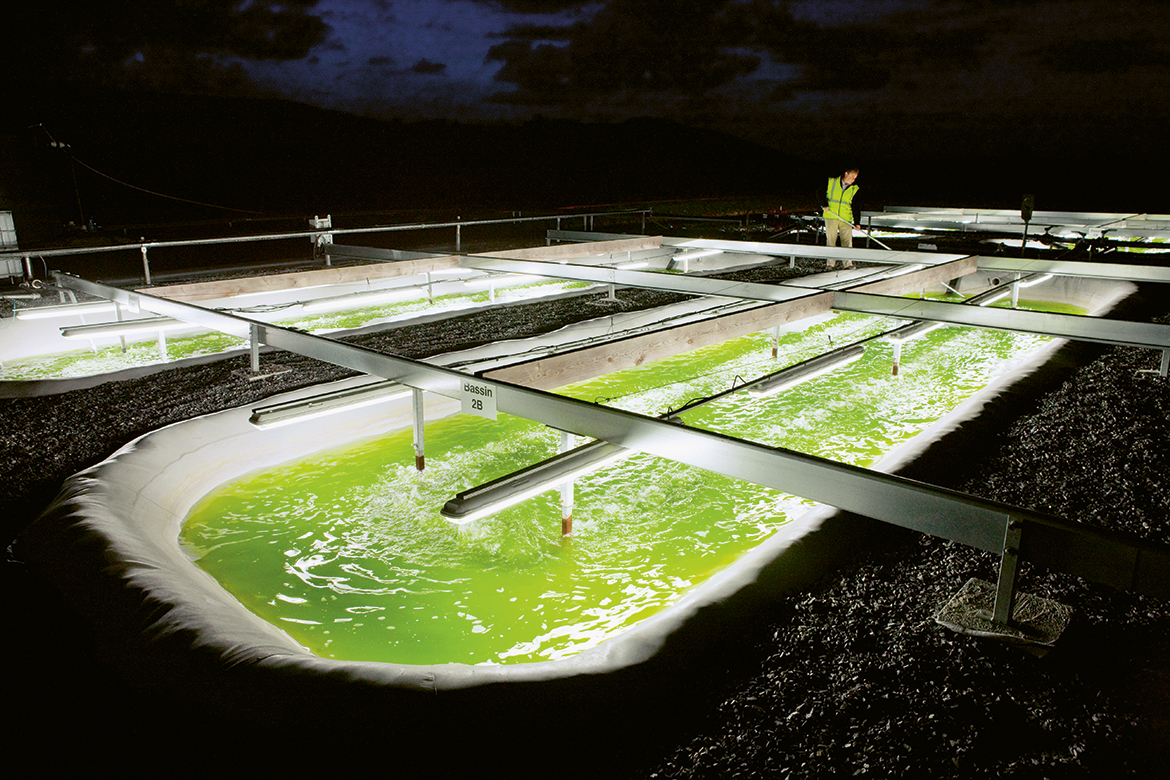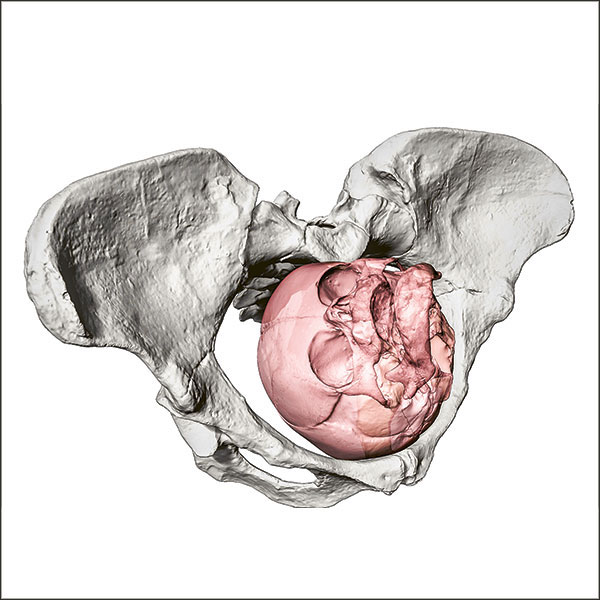Giving up an academic career
Training huskies, teaching archery to people in personal crises, farming an Alpine pasture – many find giving up an academic career a bitter experience, but it can also offer new opportunities. Five former researchers tell us their stories.
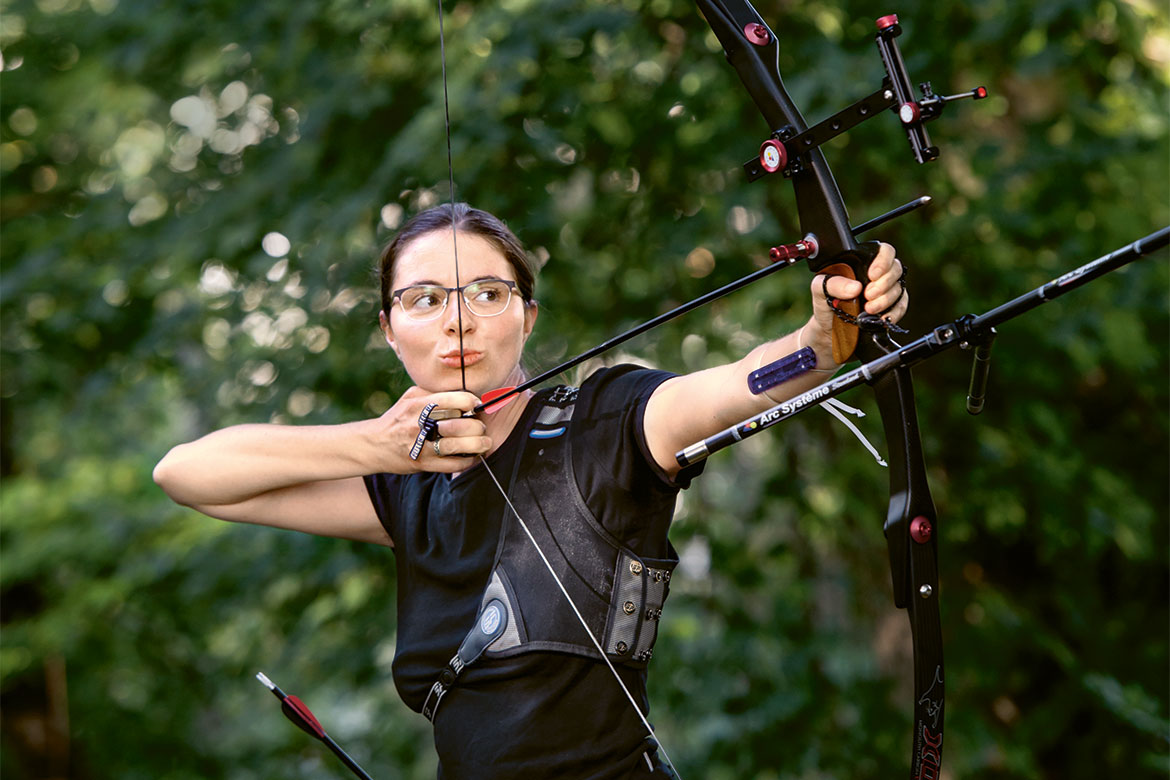
Christine Scheidegger, formerly a gender researcher, today an archery trainer | Image: Valérie Chételat
THE SEARCHER
“What nearly killed me was the lack of recognition”.
There’s an arrow and a bow. The arrow has to fly from A to B. Quite simple, really. And yet it’s highly complex. Because head, heart and body all have to be in harmony. Christine Scheidegger, formerly an expert in comparative political studies and a gender researcher, today teaches people archery. She’s 39 years old, calm, and carefully considers every sentence she utters. It’s like her words have to hit the mark each time, too. Perhaps this thoughtfulness comes from her training in the social sciences. For ten years in her scholarly environment, she meticulously observed everything that happened, and everything that didn’t, before deciding to leave academia.
In fact, she doesn’t like to speak of ‘leaving academia’, because it wasn’t voluntary. It was costing her ever more energy to live in what was a “toxic, discriminatory environment” with precarious conditions of employment. “The Swiss academic career system is based on being co-financed by your partner and by inherited money. What also nearly killed me was the lack of recognition. You work the whole time, at weekends too, but then you’re always told it’s too little. Like most people, I invested more in my job than could reasonably be expected of me”.
Scheidegger’s doctoral thesis, ‘Women’s Policy Machineries in Comparison: Bricks for Equal Gender Relations’, dealt with the structural dimensions of gender relations, and it received a good international response. “Even today, I get e-mails from researchers who are enthusiastic about my results”. But she still didn’t get a job or any grant funding. And two of her applications to the SNSF were turned down, too.
When Scheidegger finally packed her bags, she didn’t do it quietly and unnoticed, as people in that position usually do. She took her leave officially at an international conference, announcing that she would in future be earning her living from giving archery lessons. Quite a few people were perplexed. But many admired her for her courage. “Archery is charged with mystical, romantic notions”, she says.
For two years now, Scheidegger has been teaching this trendy sport in Tiefenau, an idyllic spot on the outskirts of the city of Bern. She also offers archery as therapy for people in psychiatric treatment, and as mindfulness training for people in situations of upheaval. She says: “I was a researcher, and I’m still searching. And I’m now offering my searching skills to people who are searchers themselves”.
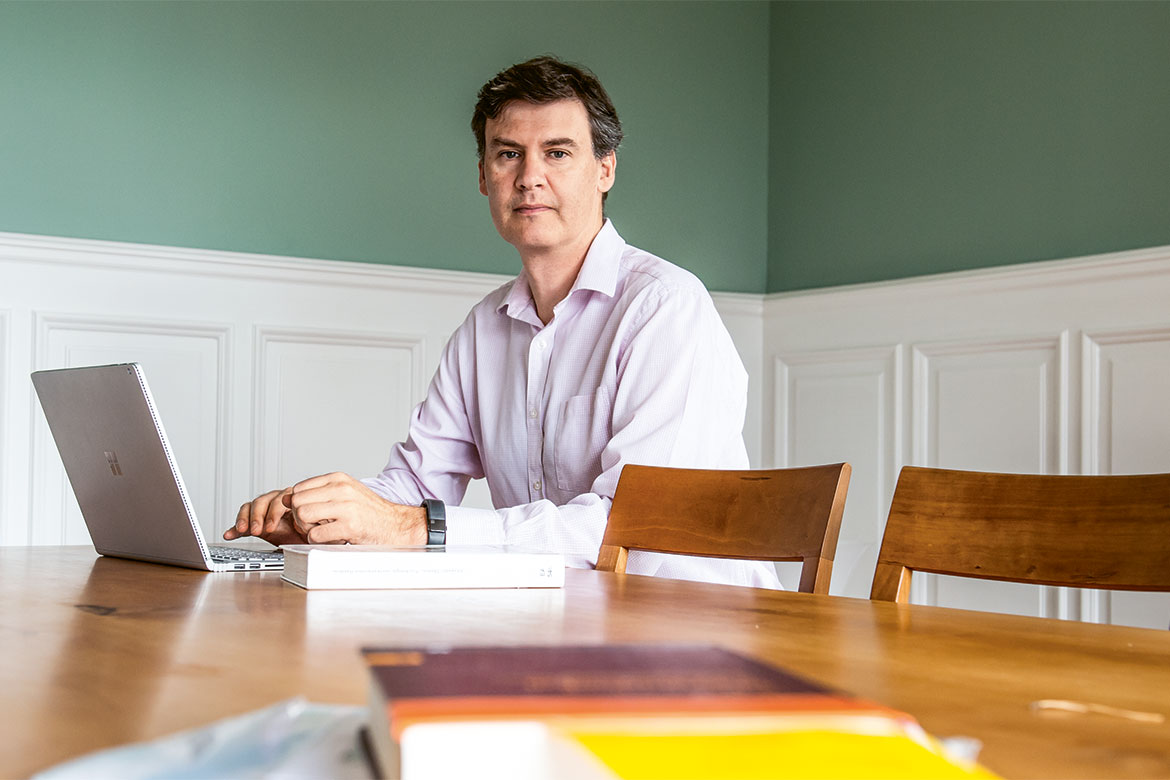
Donald Kossmann, formerly a professor at ETH Zurich, today a research manager at Microsoft | Image: Valérie Chételat
THE RESTLESS ONE
“Just leaning back and enjoying life isn’t my thing”.
Being a Professor is a dream job at the pinnacle of an academic career. Donald Kossmann was the chair of the Department of Computer Science at ETH Zurich for 13 years. And then he left. In 2017, he moved into the private sector to work as the head of the Microsoft research laboratory in Redmond near Seattle, USA, where he’s now investigating how data can be kept both securely and cheaply in the cloud.
“The science community was shocked, to be sure”, says Kossmann. He doesn’t quite know himself why he decided to start something completely new. “I love the ETH. But I’d reached a plateau and couldn’t go any further”. So at the age of 50, he decided to leave his comfort zone. Initially, things were tough in the USA, and the work was hard. He describes himself as a “European through and through”. He misses his family and Switzerland, but he’s enthusiastic about his new experiences and especially about his fantastic new colleagues. The pressure to be successful is intense in both places, he says. “But just leaning back and enjoying life isn’t my thing”. Research remains Kossmann’s passion. “It’s incredibly satisfying to have an idea – perhaps a crazy one – and then, ultimately, to be able to improve the world with it”.
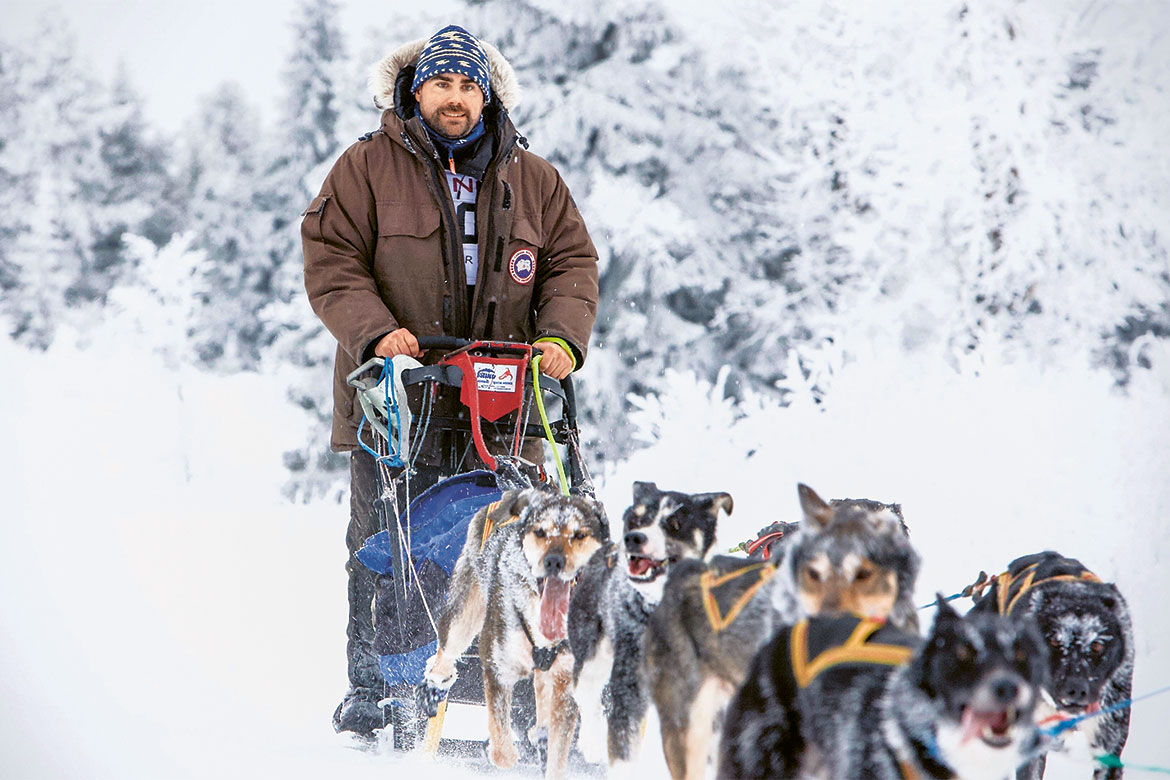
Sébastien Barrault, formerly a bioengineer, today a restaurateur and husky trainer | Image: Øistein Sørensen
THE QUIET MAN
“I regret nothing”.
“Life is full of decision points. I regret nothing. I’m here now. It’s wonderful”. ‘Here’ is ‘Sandbakken Sportsstue’, a popular holiday destination in the middle of the Norwegian forests to the south-east of the capital city of Oslo. Sébastien Barrault originally comes from the canton of Valais. Since 2015, he has trained some 16 huskies here in the forest, and also runs a restaurant together with his partner. However off-the-beaten-track it might sound, this restaurant in fact signifies a return to civilisation for Barrault, who’s an EPFL-trained bioengineer. He used to work as the head of a research station in the northernmost human settlement in the world, on Spitzbergen in Norway, where scientists observe the impact of global warming on the Arctic.
Departure from the world of research happened rather by chance for Barrault. He was offered the opportunity to take over the Sandbakken hostel, and he simply said yes. He’s 42 now, and he doesn’t miss research at all. He likes to get to the bottom of things, but he can do that, too, in his work with dogs. He doesn’t see any other parallels: “It’s something very different. In research, you’re dealing with concrete facts, but working with dogs is about experience and feeling”. Barrault says he’ll never return to research. For one thing, technology progresses so quickly that you soon lose touch with what’s happening. And for another, his life is calmer now. “I didn’t like the pressure to publish in the research world. Nor the harsh, sometimes abrasive feedback from the peer reviewers”. Of course he’s still very busy today – but it’s a very different kind of stress.
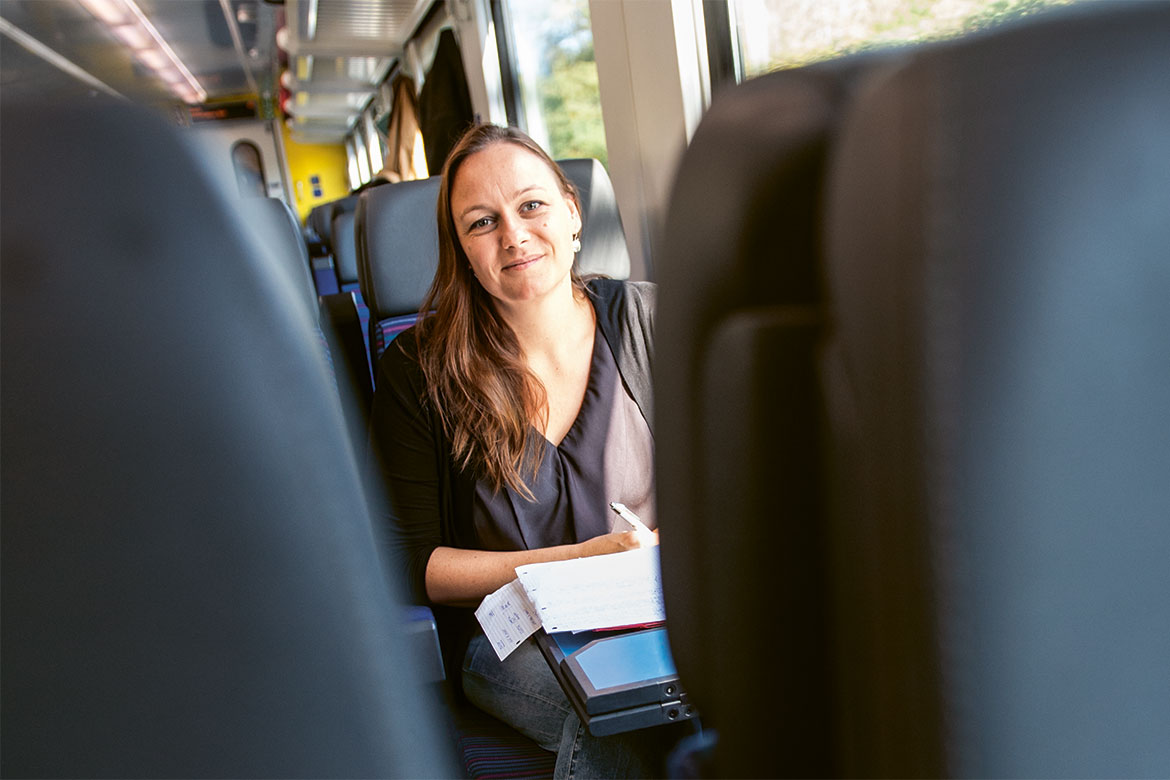
Nadja Feddermann, formerly a plant biologist, today a career coach | Image: Valérie Chételat
THE NETWORKER
“I thought to myself: I only know science, nothing else”.
The roots of a clover use bacteria and a fungus to trigger an exchange of phosphates and sugar. This was Nadja Feddermann’s fascination: “How do they realise which is which? How does their timing function?” She’s a biologist, and wrote her doctoral thesis about these questions at the University of Basel. She then researched into similar issues as a postdoc – in Sweden, in Fribourg and in Neuchâtel.
She could have stayed in Sweden, and she was also offered a job in the USA. Instead she returned to Switzerland because of a relationship she was in. But after a few years, things got difficult. The funding for her research projects ran out, and she was unable to find new sources of income. “The air gets pretty rarefied, higher up in the tertiary sector”. But she loved science. “It was my thing”. Yet she had largely ignored the specific steps she should have taken to further her career. “That was my mistake”.
It was this ‘mistake’ that has made Feddermann what she is today: a satisfied coach for academics who are looking for a job – or who have just started a new one. She was 42, and she initially went through a loss of orientation herself. It was tough. She had no idea how the Swiss job market functions. “I thought: I only know science, nothing else”. At the same time, she found her own problems fascinating. How does one plan a career?
Ultimately, she went to see a private coach and discovered that she knew a lot more than just science. For example, she’d liked organising collaborations between researchers and students. So her next step suddenly seemed a logical one. She trained at a French-speaking coaching academy, and today coaches the partners of expats. Her clients include big pharma companies. Feddermann is once again captivated by her work. But instead of being focussed on communication in a clover root, she’s focussing on communication between people.
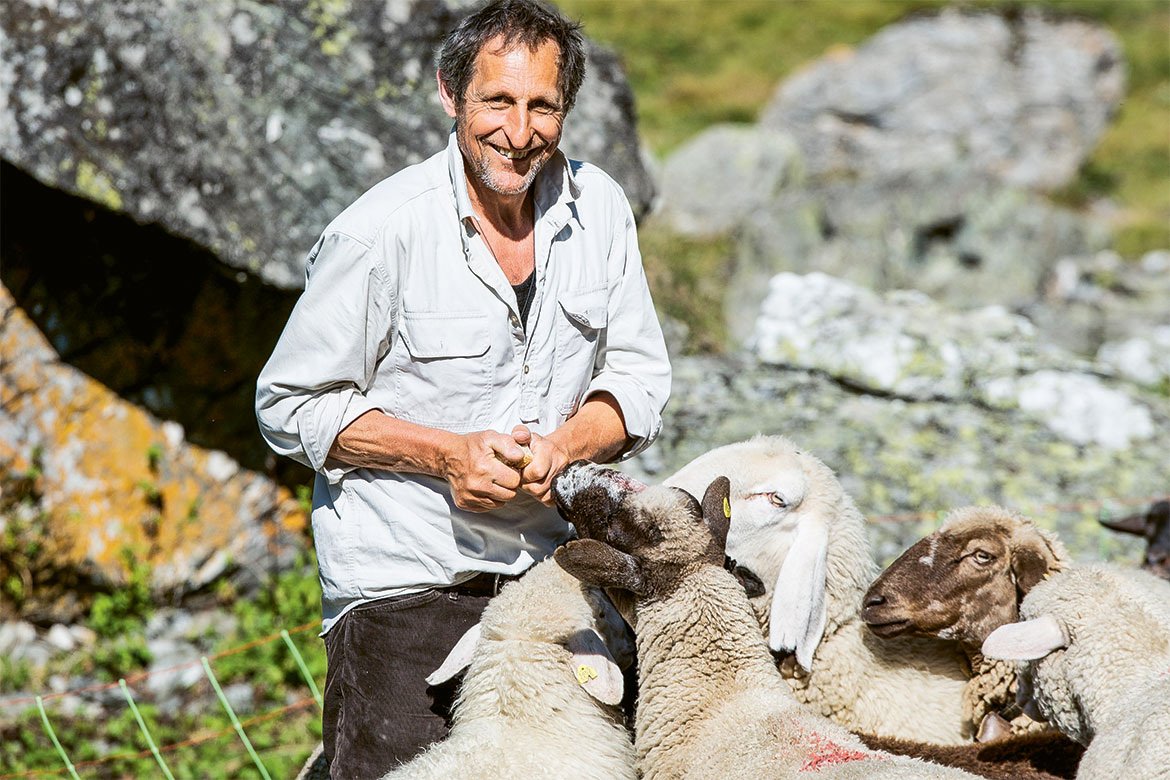
Rudolf Helbling, formerly a lecturer in agricultural economy, today an Alpine farmer and shepherd. | Image: Ti-Press/Francesca Agosta
THE ADVENTURER
“I like to grit my teeth and get on with things”.
He had to walk for an hour along the mountain at an altitude 2,000 metres before he was able to find a phone signal. Only then was he able to speak to us about his love of freedom, of the raw mountain world – and of economic issues. Rudolf Helbling, the head of Pastorizia Alpina, has been managing land up in the high Alps since 2003, in Misox in the canton of Graubünden. His work includes shepherding – looking after cows, sheep, goats and horses.
He’s 58 today. But in his youth he dreamed of being a cowboy – so he travelled to New Zealand and the USA, and gained experience there as a farmhand and a sheep shearer. He also understood that he wouldn’t be able to realise his dream of having his own farm. So he studied economics in order to put his career on a more secure footing. He took his doctorate at the Institute of Agricultural Economics and Law in St. Gallen, and from 2003 to 2015 was a lecturer in economics at the University of St. Gallen (HSG).
Helbling was often able to combine his two passions, and invested his practical knowledge in his research projects. For example, he was able to show how treatment plans for animal ailments such as hoof diseases among sheep can have an impact on Alpine agriculture. He also lectured in agricultural economics at HSG. One of his focus areas was how farms that depend on the land are run as family businesses almost the whole world over, not according to industrial principles. He also investigated incentive problems, such as: how can you motivate a farmer not to overuse his land?
This wanderer between two worlds sees similarities between his different commitments. “Whether working on the land or on a research project, perseverance is important. I like to grit my teeth and get on with things. You have to hold out when you’re unsure whether things will end well. No one else can do that for you”. It’s rare that an Alpine farmer can have a dialogue with academics on an equal footing. “Researchers often believe that knowledge is the most important thing, which is why people who’ve garnered years of practical experience are steamrollered by urban interlopers with their regulations, rules and concepts. This is true of agricultural minorities everywhere”.
Pastorizia Alpina is running well economically, says Helbling. But he’s very much aware that he won’t be able to live like this for ever. “At some point, I’ll have to concentrate on something that makes fewer physical demands”. Then returning to research would again be an option for him.

